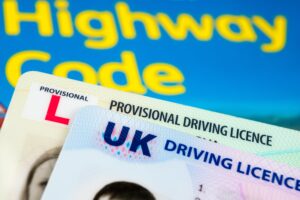
The Driving and Vehicle Licensing Agency (DVLA), the UK government department responsible for issuing driving licenses, collecting road tax, and keeping a database of vehicles, has seen customer interactions with its online chatbot service increase by nearly 1,000 per cent.
This data was obtained via a Freedom of Information (FOI) Act request issued and analysed by the Parliament Street think tank. The information provided by the DVLA revealed that the specific volume of chatbot interactions with motorists rose from 512,017 in 2019-20, to 2,802,256 in FY-2020-21, rising to a staggering 5,423,277 in 2021-22.
This marks a total rise of 959 per cent between the two financial years FY 2019-20, to FY 2021-22. This data also equated to a total rise of 94 per cent between the two most recent financial years.
The news comes following a report in The Sunday Times that The DVLA has admitted that there will be no return to normal service for drivers with medical conditions before the end of September. The report went on to state that more than 200,000 applicants have waited longer than 10 weeks to find out whether they can continue driving, due to backlogs in the system.
Commenting on the research, tech expert Niall Crosby, CEO AG Grid said, “Chatbots can play a crucial role in managing and filtering large volumes of customer enquiries, particularly when the request is for simple tasks like changing driver information and vehicle updates. More importantly, they can free up DVLA workers to concentrate on important tasks like handling complex queries and improving services.
Crosby continued, “Far too many organisations are still missing out on the benefits that chatbots and AI can bring by harnessing the power of data and the DVLA should be praised for implementing technology to improve customer experiences.”
Suvish Viswanathan, of Zoho Europe said, “Customers today expect almost instant responses to their enquiries, and a positive customer experience can make a huge difference when it comes to loyalty. However, since the mass digitisation of consumer services, the number of inbound requests for organisations, particularly large public bodies like the DVLA, will only continue to rise. It makes sense then that businesses and government departments are looking towards Chatbots as the solution to help manage the influx of customer requests.
“Chatbots, powered by AI, can help organisations streamline their customer experience, by offering swift responses to basic requests or common questions. This can save human operators hours worth of their time as they should then only need to direct their attention towards more pressing or complicated requests.
“However, chatbots have a reputation for being suitable for use only for the most basic of requests, which can sometimes lead to frustration for consumers looking for more bespoke support. This makes it essential to provide a human interaction option when needed. It is also vital for the data gathered to be connected to other systems, such as Customer Relationship Management tools, to complete a sophisticated and holistic online customer service process. This will play a vital role in ensuring follow-ups can be made methodically and efficiently, driving deeper consumer engagement, reducing waiting times and generally improving customer satisfaction.”
Parliament Street researchers suggested that the Covid-19 pandemic, and resulting backlog of driving test candidates, is largely to blame for the sharp rise in chatbot interactions. In fact, the backlog is so severe that some learners are waiting 10 months for a driving test, whilst others face eight-hour round trips just to get to theirs due to a shortage of examiners and instructors.
In order to deal with the increase in demand for online customer service, the DVLA revealed that they have increased its IT budget from nearly £103 million in 2020-21, to nearly £110 million in 2021-22 – which amounts to a £6,900,000 increase year-over-year.
The DVLA’s chatbot service, supplied by the Salesforce Einstein Chatbot and Live Agent tools, was originally introduced as a pilot project in April 2019 to help deal with the over 1 million calls and enquiries they typically dealt with per month at the time. After witnessing the success of the chatbots the DVLA decided to invest in and upgrade their chatbot systems.
Read more:
DVLA ‘chatbot’ interactions surge by nearly 1,000% since start of Covid pandemic




